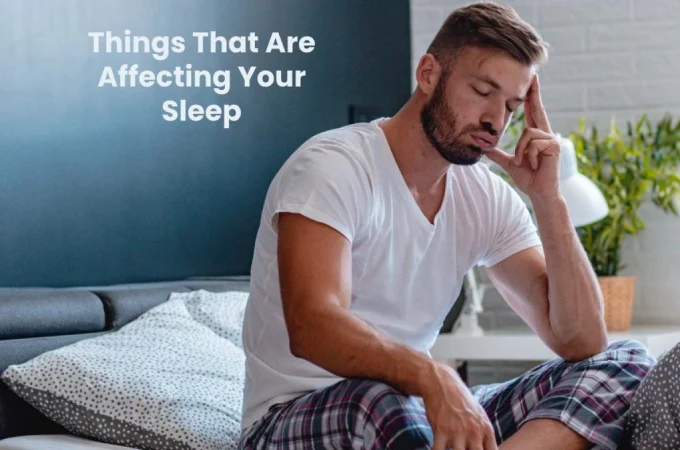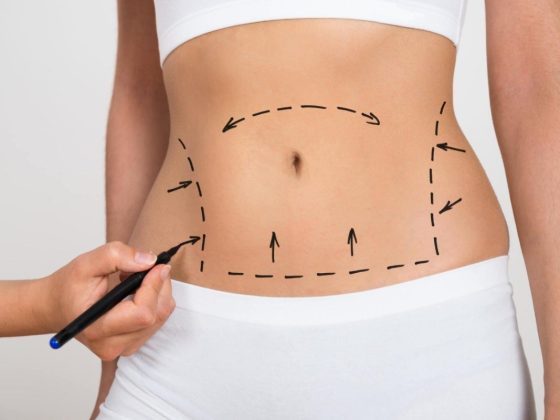Things That Are Affecting Your Sleep
A good night’s sleep is a crucial component of good physical and mental health. Most adults know this, but many don’t get the quality and amount of sleep they need to avoid health issues. Instead, they risk developing things like depression, cardiovascular disease, diabetes, obesity, and other conditions.
If you and restful sleep are habitually battling bedfellows, you should know what may be dashing your sweet dreams. The reason might be something other than the obvious, like stress or too much late-night caffeine.
Recognizing what may be interfering with your Z’s is the first step in addressing the problem. Here are three things that are affecting your sleep that you might not have thought of.
Table of Contents
1. Over-Relaxed Throat Muscles
It would seem that a completely relaxed body state would be a panacea for slumber. For the most part, that’s true. However, if the muscles in the back of your throat are too relaxed, your airflow is compromised, affecting your sleep.
This common condition is known as sleep apnea, and many people suffer from it. On the one hand, your body naturally responds to the resulting lack of oxygen by waking you up. On the other hand, the awakening is so brief that you probably won’t remember it at all.
Because you are constantly awakened by your body’s natural response to suffocation, your body restarts its sleep cycle repeatedly. That leaves you worn out the next day. To eliminate the disruptions, you should talk to your doctor about continuous positive airway pressure therapy (CPAP).
CPAP machines force the airflow through those relaxed muscles to keep you breathing normally throughout the night. CPAP masks are crucial to ensuring that airflow, and not all of them are created equal.
The best CPAP masks maintain a tight seal regardless of what type of sleeper you are. Light sleepers, side sleepers, restless sleepers, female sleepers, and males with facial hair should find masks suitable for them. Wearing the wrong mask is like wearing no mask at all.
You may not be aware you have sleep apnea, but anyone who shares a bed with you likely is. Periods of loud snoring followed by moments of no breathing at all are dead giveaways. If you suspect sleep apnea, talk to your doctor about CPAP solutions.
2. Too Much Light
The circadian rhythm is a cycle that resets itself every 24 hours. It’s that biological clock that ticks to the beat of your body’s natural processes. If it’s out of whack, your sleep will take the rap.
Research has shown that light and dark have a tremendous effect on the body’s natural rhythm. The wrong light at the wrong time may make you sleepy when you should be alert and vice versa. Light, including what’s shining in the bedroom as well as screen time, can wreak havoc.
According to Phyllis Zee, chief of sleep medicine at Northwestern University’s Feinberg School of Medicine, even a moderate amount is harmful. A study conducted by Zee and colleagues showed that any amount of light can interrupt the rhythm. That includes your bedside lamp, the television you leave on all night, or the streetlight outside your window.
Bedrooms should be dark, at a comfortable temperature, and quiet. Long before you hit the hay, consider dimming the lights in other rooms you spend time in. For example, turn off overhead lights and use a lamp to read.
Whatever you do, experts recommend no screentime for an hour or more before bed. The blue light of screens suppresses the melatonin you need to lull you to sleep. So, resist the temptation to check your social media feed shortly before getting some shuteye.
For hundreds of thousands of years, humans have been active during the day and sleeping at night. Despite modern technology, we continue to march to the beat of the circadian rhythm. When it’s time to go to sleep, you should be in the dark.
3. Poor Planning
When you were a kid, you probably had a parental-enforced bedtime. It might have gotten later as you got older or you may have been given a little leeway on weekends. But your sleeping schedule was pretty much set and followed.
You might be an adult now, but that doesn’t mean you’ve outgrown the benefits of a scheduled bedtime. You may find yourself falling asleep more easily, staying asleep throughout the night, and waking up feeling more refreshed. Research has shown that routines do this for kids, so why not you?
Consistency may be the hobgoblin of little minds, but it’s also part and parcel of great sleep. That applies to most things you do, not just a programmed bedtime. Your eating and exercise routines can help you rest easier as well.
Even a small amount of regular exercise will make you more tired by the end of the day. Just be sure to avoid scheduling exercise within an hour of bedtime. Figure out what you can do in that last waking hour other than screentime, bright lights, and exercise.
You also need to establish an eating schedule. It’s recommended to give your body three hours of fasting before bedtime. This allows for adequate digestion and lowering of insulin which can interfere with that circadian rhythm.
Establishing a comprehensive sleep-enticing routine will help you rest better. Moreover, healthy diet and exercise routines ensure that you avoid those health issues that can occur with poor sleep. A good bedtime story might not hurt either.
Rest Easy
Things That Are Affecting Your Sleep – If you aren’t logging enough sleep hours or suffer disruptions that put your sleep cycle on rewind, figure out why. Consider the obvious reasons first, then explore the more obscure. Oxygen flow, illumination, and lack of a slumber-inducing routine could be the culprits.
The potential health implications of inadequate sleep are far more serious than being cranky at work. Failure to address health and lifestyle issues can be life-threatening.
Don’t let worrying about what’s keeping you up at night keep you up at night. Small changes could yield big results that will allow you to rest easy.


